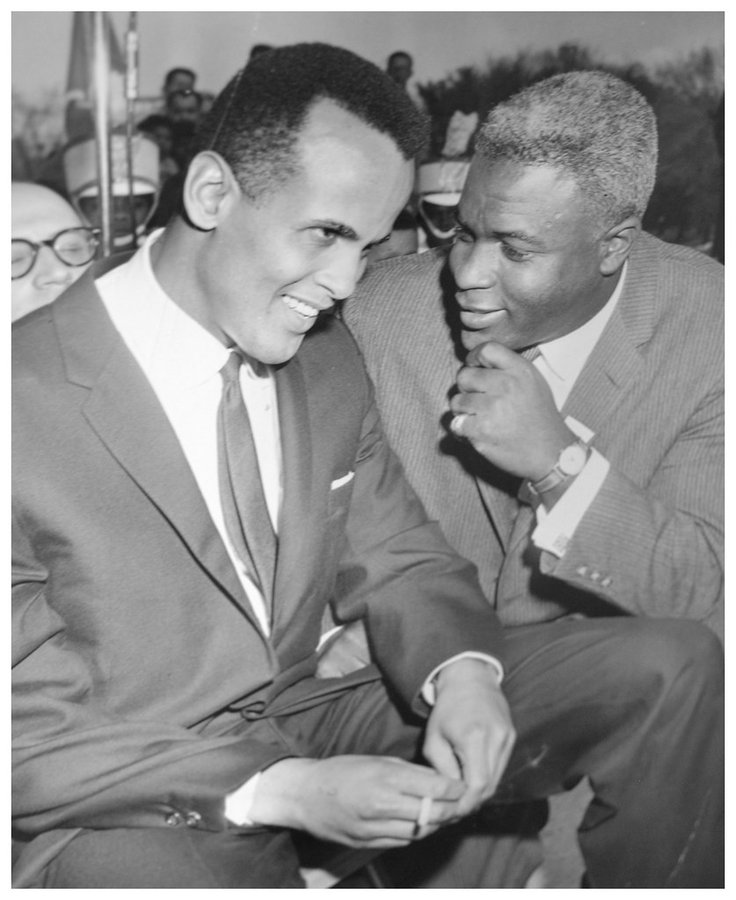By: Zachary Draves
Few can say that they have lived a life of dignity, principle, and service and be able to back it up. Harry Belafonte was one of those select few.
 (Courtesy: NBC/NBCU PHOTO BANK/GETTY IMAGES)
(Courtesy: NBC/NBCU PHOTO BANK/GETTY IMAGES)
On Tuesday, the beloved singer, actor, and activist affectionately known as the “King of Calypso” passed away at the age of 96. He left behind an enduring legacy of dedication to the betterment of humanity that puts him in the same category as some of his contemporaries with whom he shared his journey with such as Martin Luther King Jr, John Lewis, Rev. Jesse Jackson, and fellow actor/activist Sidney Poitier.
As he supercharged his status to become a prominent barrier breaking entertainer in the worlds of movies, music, and television, he became arguably more known for his activism beginning with the civil rights movement in the 1950’s and 1960s. From there, he was everywhere the struggle was, whether at the March on Washington in 1963, to the Edmund Pettus Bridge in Selma, Alabama in 1965, and beyond.
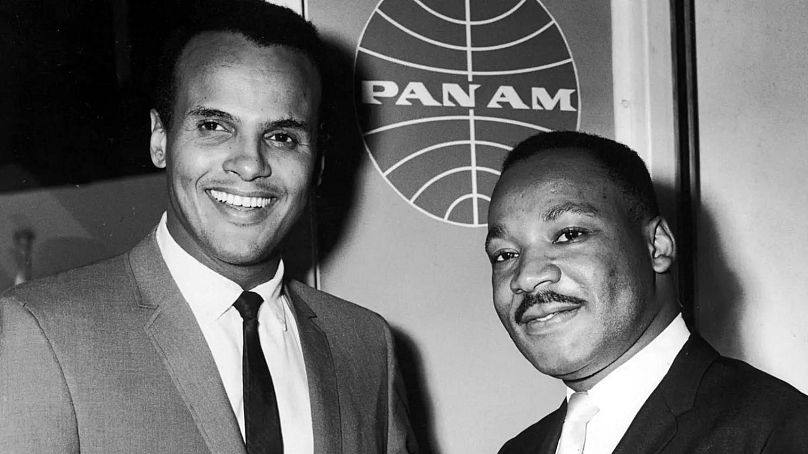
(Courtesy: Getty Images)
Throughout his life and career, he befriended many who shared his commitment to justice and some of whom were some of the biggest names in sports from the 1950’s to the present.
Jackie Robinson
Belafonte was a huge baseball fan and as he emerged as a star he became friends with none other than Jackie Robinson. On October 25, 1958, he joined Jackie, Coretta Scott King, and Bayard Rustin in Washington, DC to support a Youth March for Integrated Schools. The march garnered over 10,000 participants and Belafonte attempted to lead a delegation of youth to meet with then President Dwight Eisenhower, but he was rejected.
(Courtesy: Twitter/Baseball in Pics)
Their joining forces coincided with the burgeoning movement as well as Jackie’s emergence as a prolific activist who wasn’t the least bit shy in speaking truth. Characteristics that historically have run incongruent with the “turn the other cheek” ethos typically associated with Jackie’s story.
Muhammad Ali
Fast forward to the 1960’s and the movement was in full swing. The sense of urgency had intensified to where there was a bit of a gap between the We Shall Overcome philosophy of Dr. King rooted in nonviolence with the By Any Means Necessary directive of Malcolm X that was more confrontational. Belafonte saw was on one side and a brash young boxer from Louisville named Cassius Clay, later Muhammad Ali was on the other.
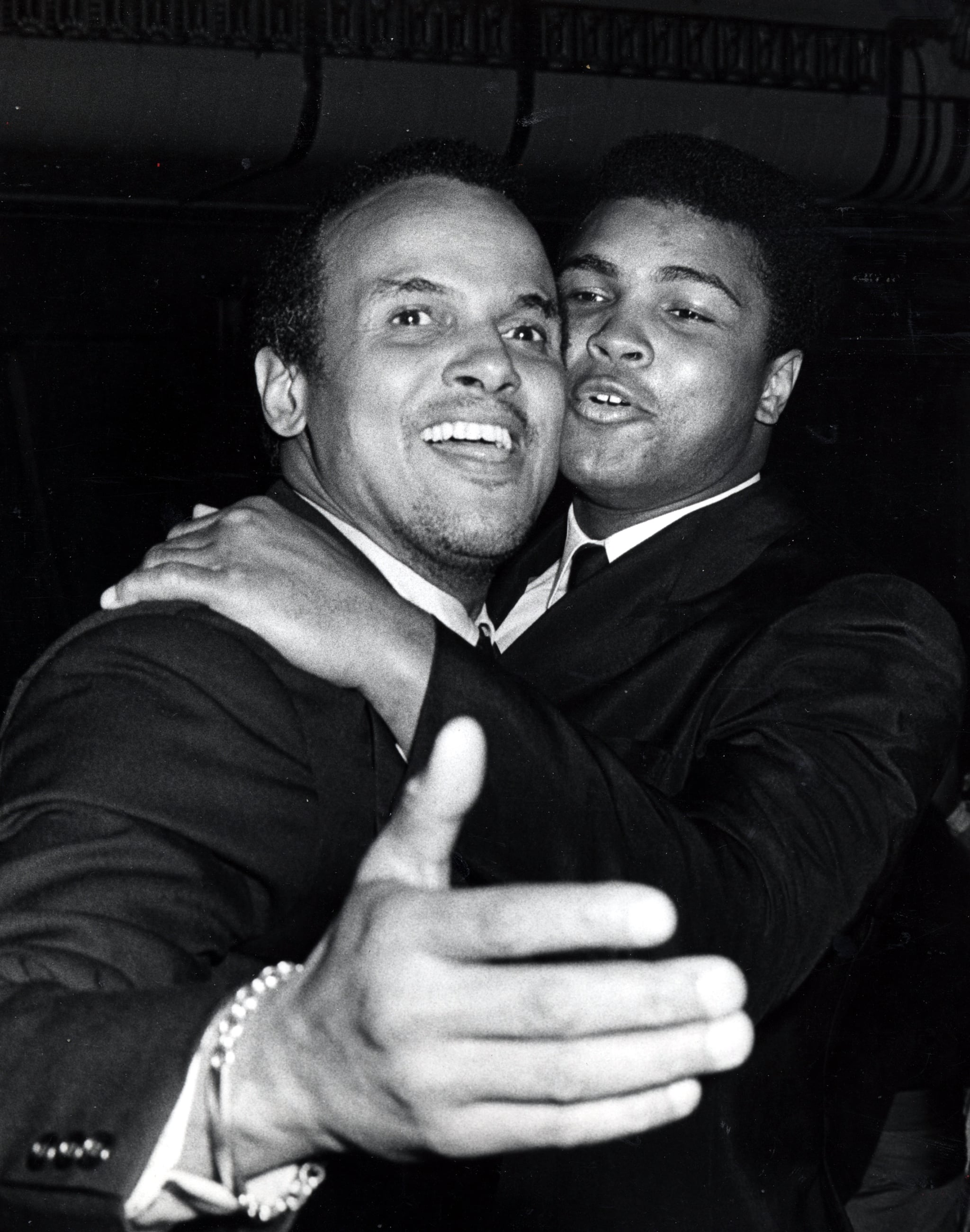
(Courtesy: Getty / Ron Galella)
The two would eventually bond over their shared principles of combating both racism and militarism. Both were outspoken in their opposition to the Vietnam War and just like Dr. King saw the connection between spending billions of dollars in military excursions while domestic responsibilities of eradicating racial and economic justice were being ignored.
In 2015, Belafonte was honored with the Lifetime Achievement Award at the Muhammad Ali Center’s Humanitarian Awards.
Hank Aaron
Bringing it back to baseball, Belafonte beared witness to the hard working exploits of Hank Aaron as he pursued Babe Ruth’s home run record of 714. Besieged by racist hate mail and threats in pursuit of the hallowed record, Aaron closed ranks to protect himself and his family.
Aaron passed Ruth on April 8, 1974 in one of the greatest moments in all of sports.

(Courtesy: Getty Images)
Belafonte would become friends with Aaron and in the 1995 Denzel Washington produced documentary Hank Aaron: Chasing the Dream, Belafonte would say that Aarons’ chasing of the record was a “litmus test for what racism is in America” as if to say that it was an example of what progress looks like when oppression is dismantled.
Arthur Ashe
In the late 1970s and throughout the 1980’s, Belafonte’s activism would take him almost halfway around the world to South Africa, which operated under the vicious racist caste system of Apartheid. By his side was famed tennis player and activist Arthur Ashe, who took up the Anti-Apartheid movement as his signature cause.
Both took part in protests outside the South African Embassy in Washington, DC and were arrested.
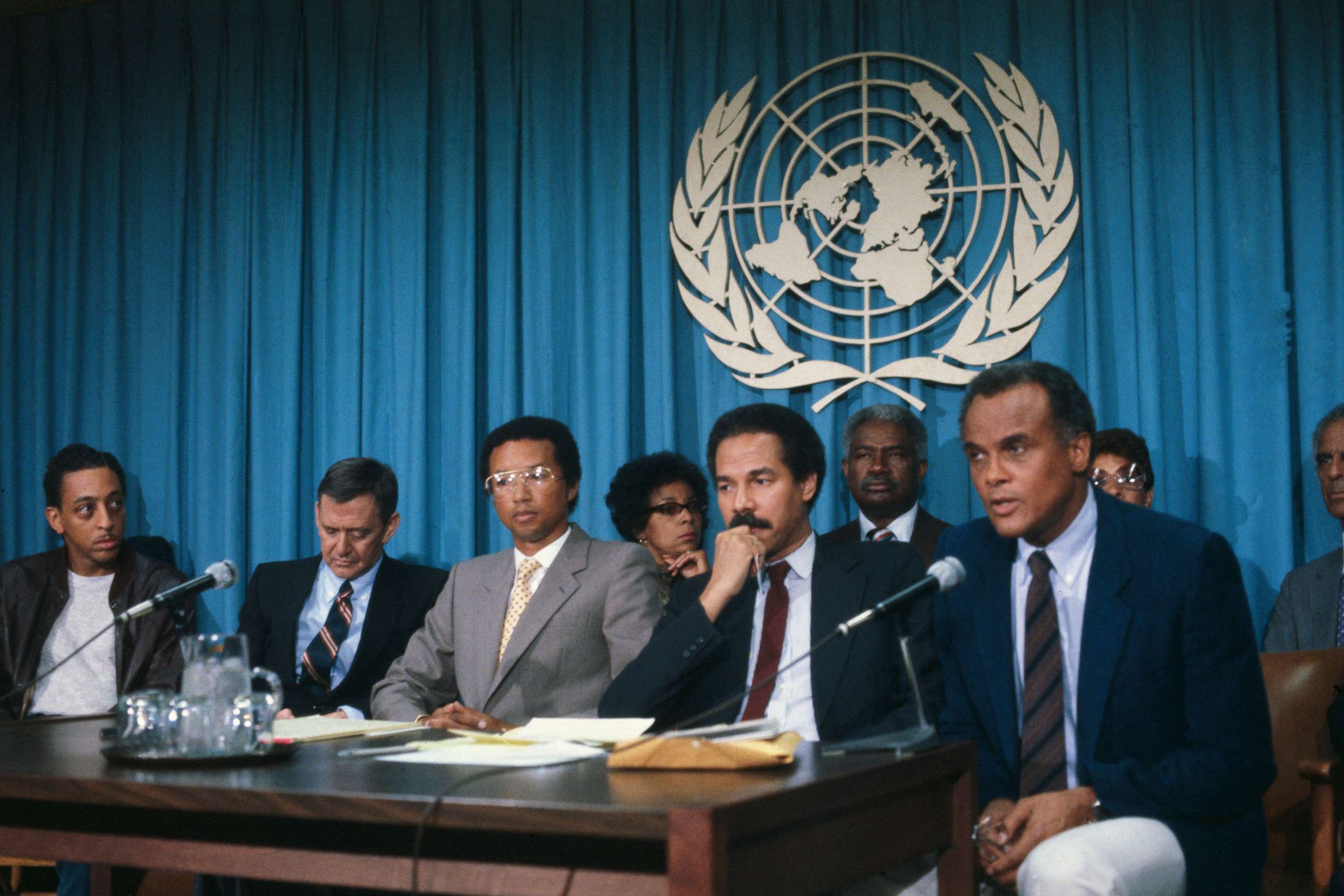
(Courtesy: Bettman File via Getty Images)
The two were instrumental behind the creation of the organization Athletes and Artists Against Apartheid, which banned together famed athletes and entertainers in organizing efforts to dismantle Apartheid.
They also joined the board of the advocacy group TransAfrica, founded by the late activist Randall Robinson that supported efforts to change US foreign policy relations with African and Caribbean countries.
Colin Kaepernick
Nearly fifty years after first being on the frontlines, Belafonte never left. He continued to show support and solidarity with the present day Black Lives Matter movement. In 2016, he publicly heralded the kneeling protest by former San Francisco 49ers quarterback Colin Kaepernick.
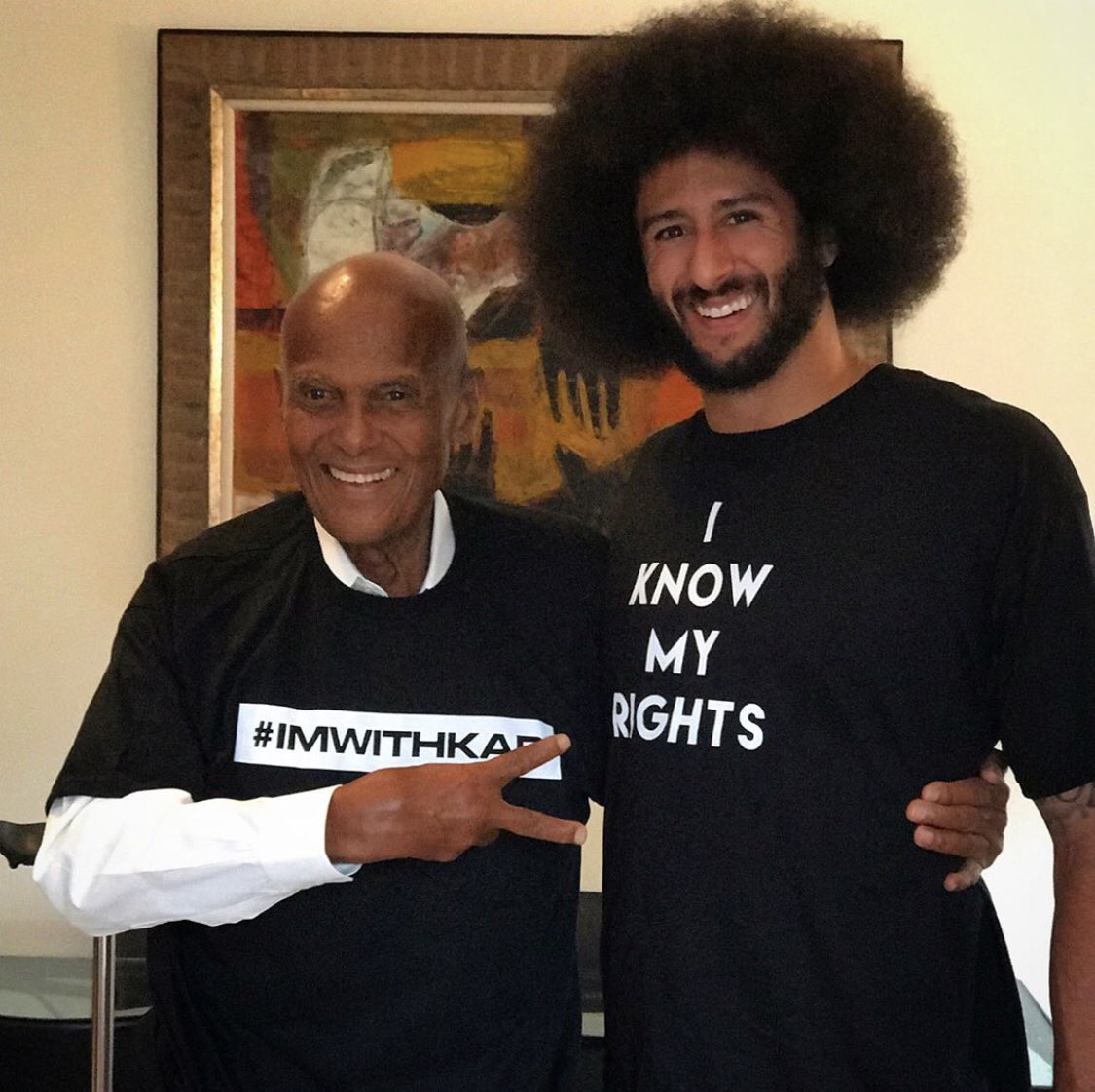
(Courtesy: Colin Kaepernick/Twitter
At the time, he said “I think that when a black voice is raised in protest to oppression, those who are comfortable with our oppression are the first to criticize us for daring to speak out against it. I think that it’s a noble thing that he’s done.”
Kaepernick took to Twitter to post a tribute to Belafonte when hearing of his passing.
Thank you, Mr. B, for all of your years of mentorship, guidance, & lifetime of activism fighting for a better future for all of us. You will be missed by many, but your memory & impact live on. Rest in Power.
“Movements don't die, because struggle doesn't die.”
-Harry Belafonte pic.twitter.com/bCArTOtCC2— Colin Kaepernick (@Kaepernick7) April 25, 2023
Legacy
In all, Harry Belafonte may not have thrown a ball, hit a home run, ran for a touchdown, threw a punch in the ring, or hit a jump shot for a living, but he saw the value in seeing those who possessed those skills following in his example of service.
For that among many reasons he will be remembered across various segments of society.
A hell of a life lived by one hell of a man.
